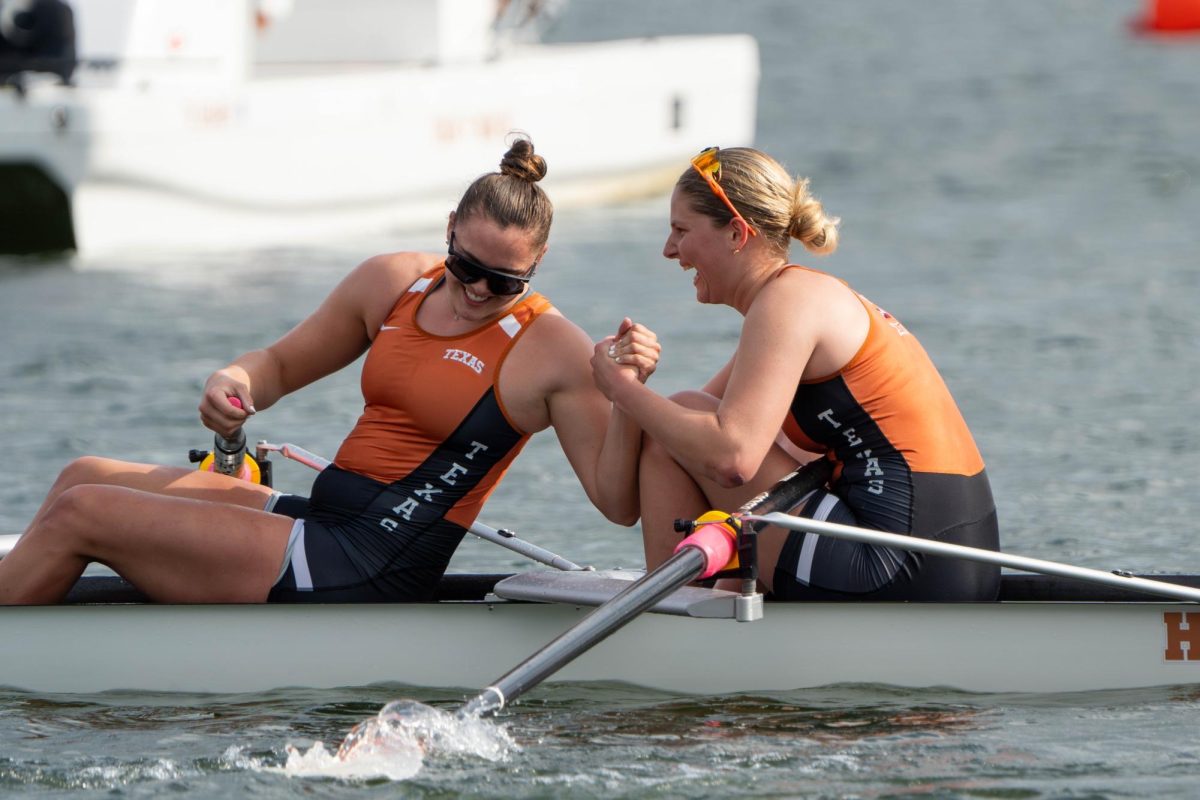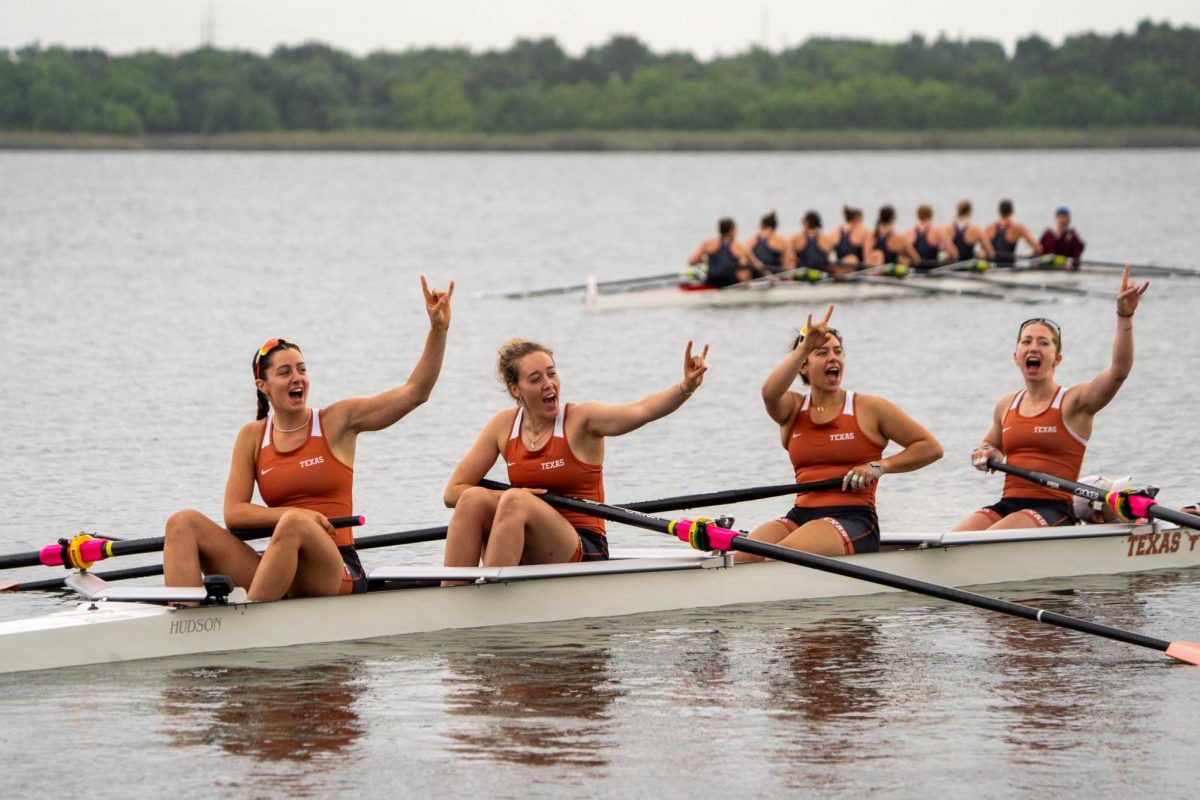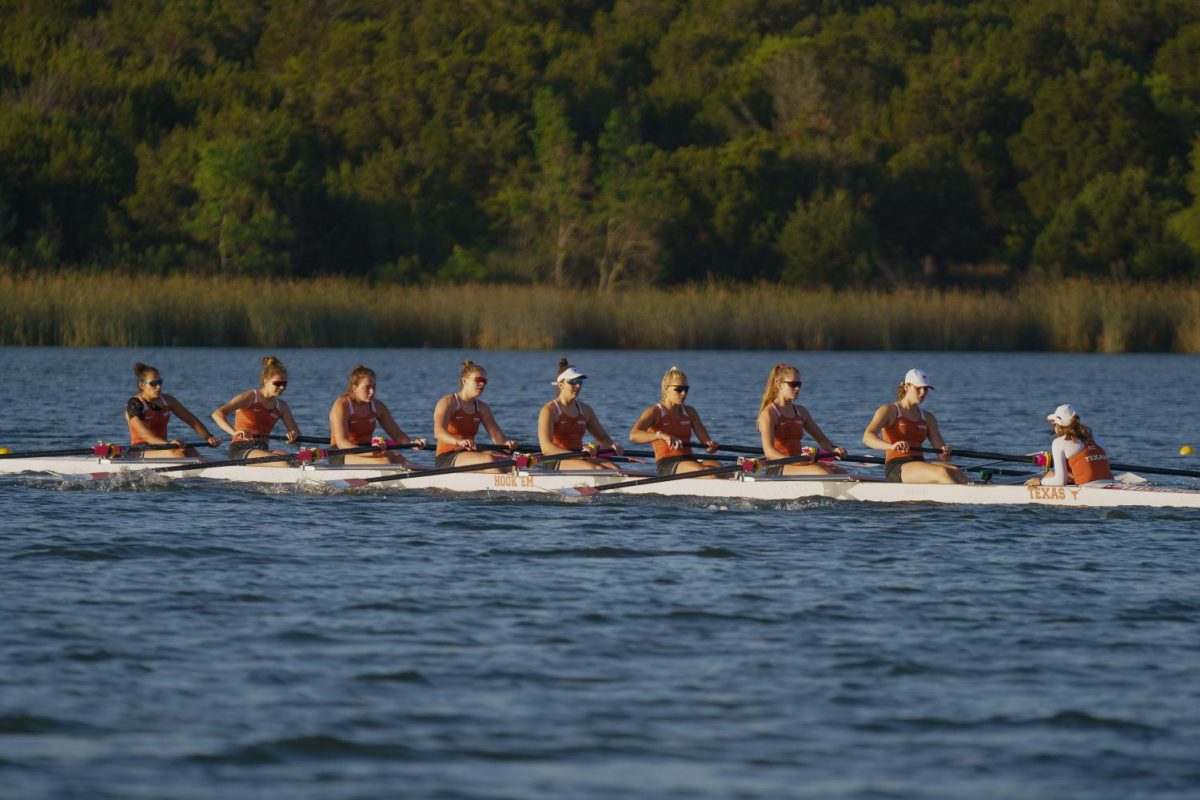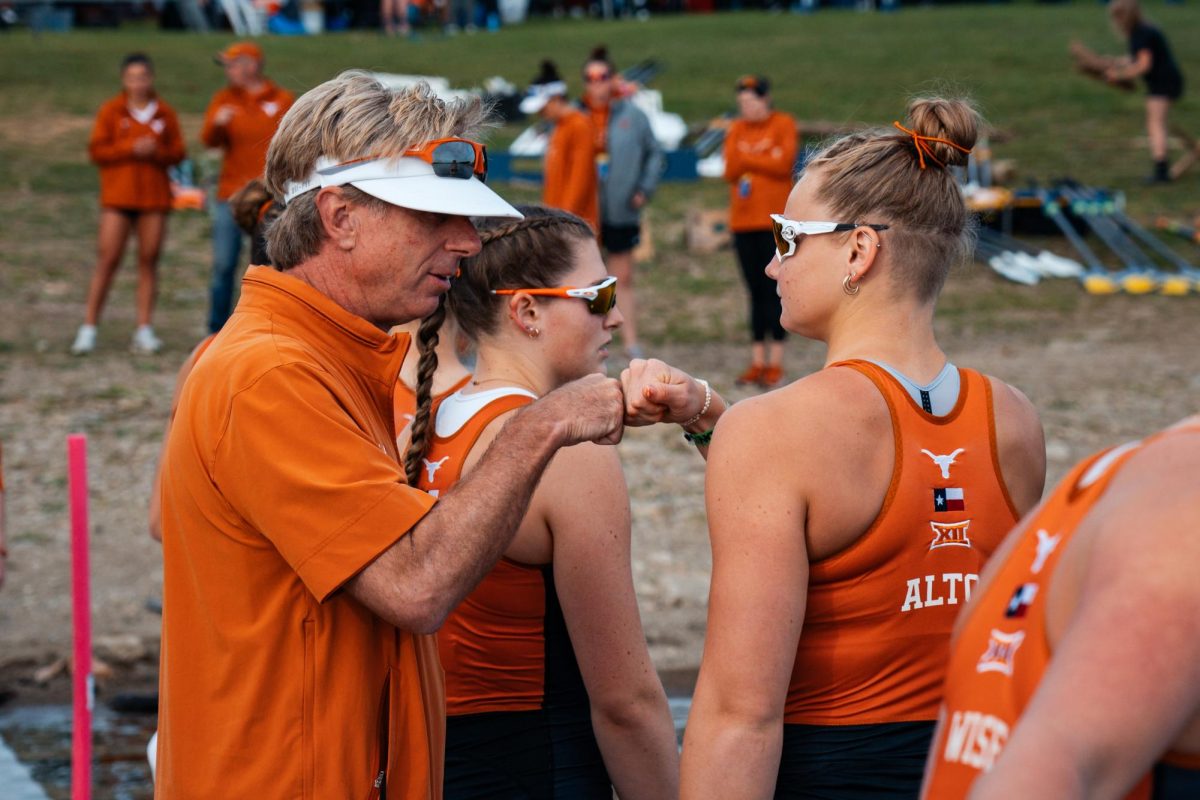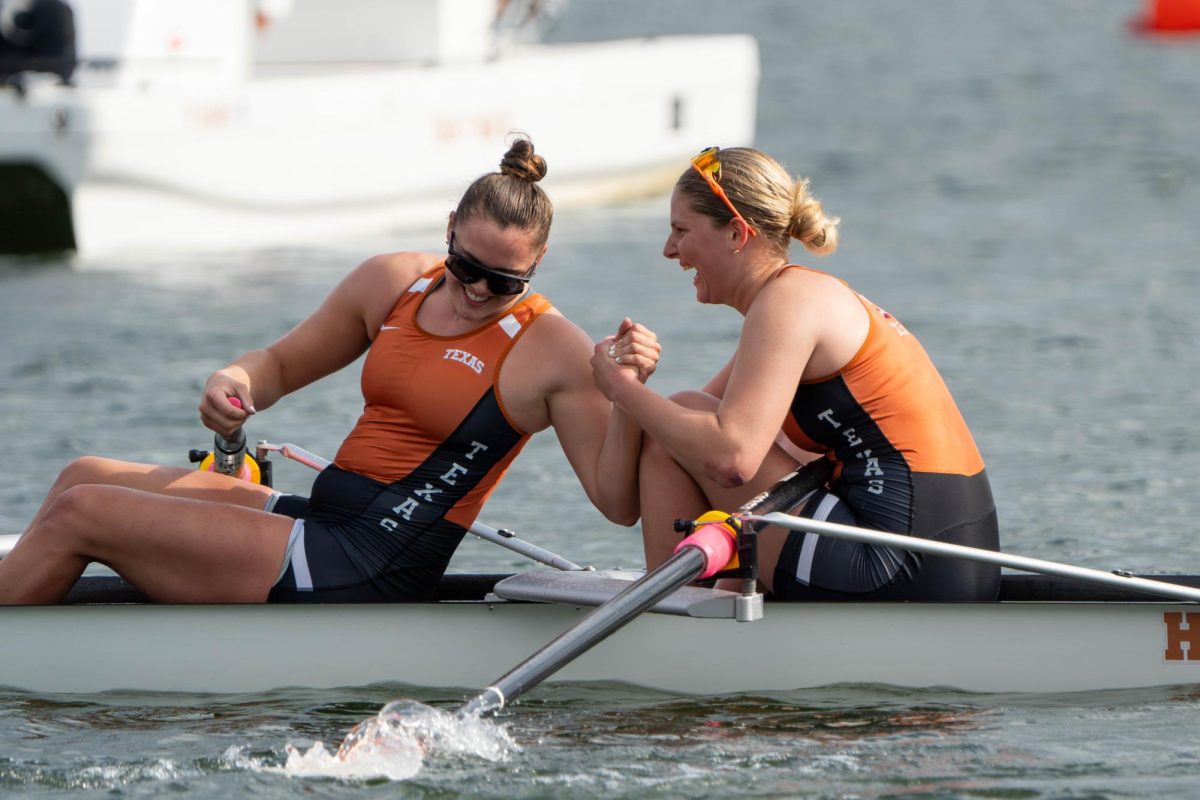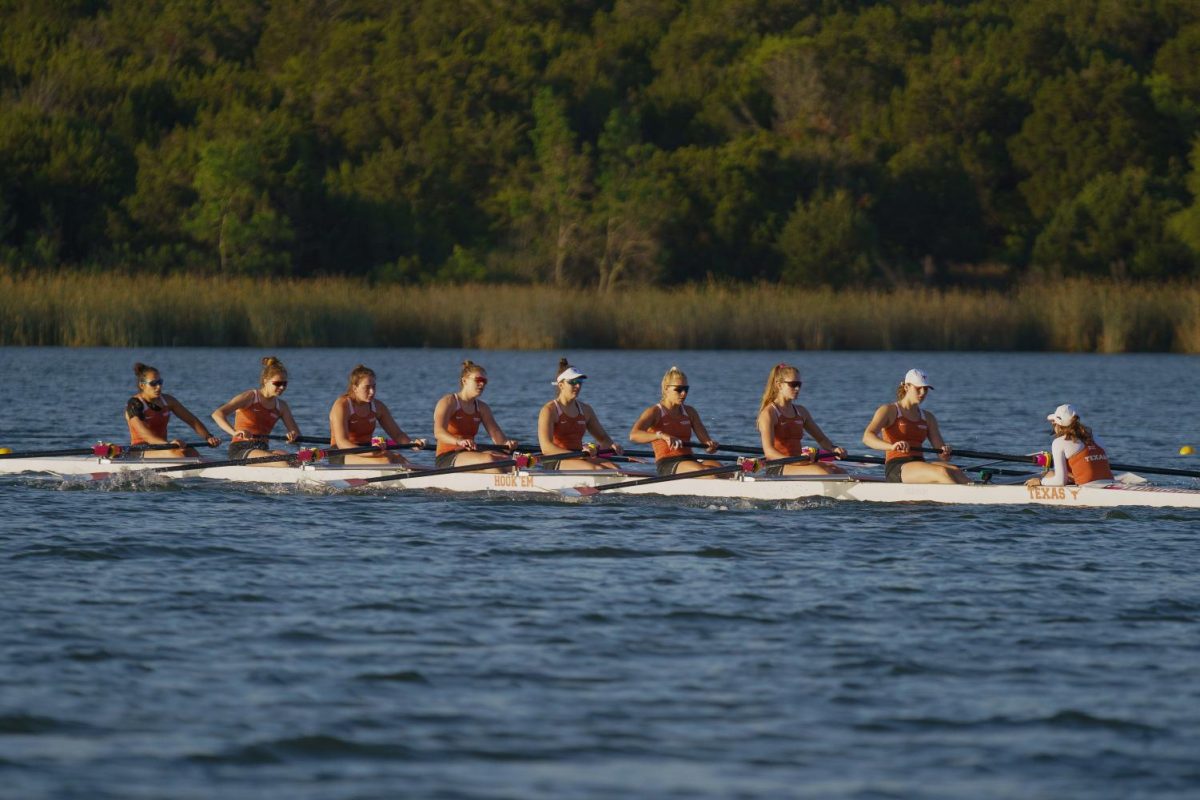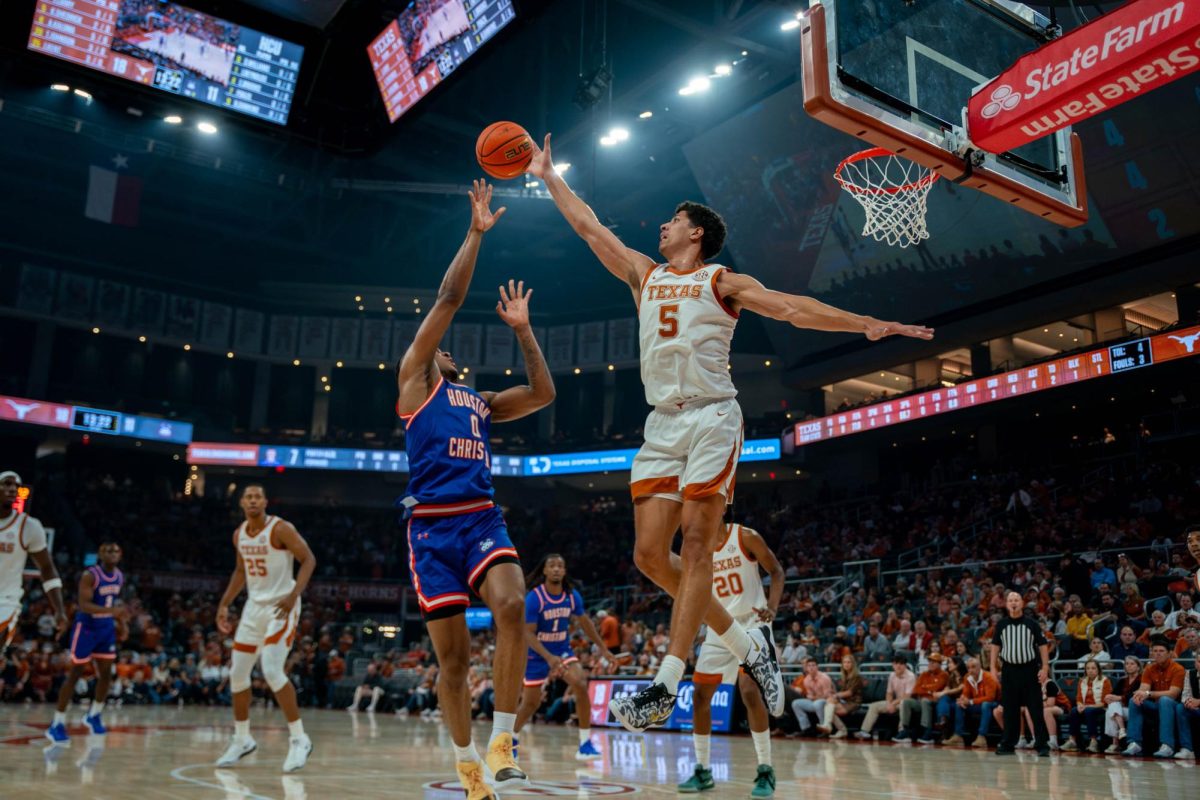Rowing carries a large bulk of the success of Texas Athletics. With three national championships in the last four years, the team has made a name as one of the premier programs on the 40 Acres. So why is the sport overlooked?
Former Longhorn rower Etta Carpender recently took to social media to share her experiences, particularly at the 2024 NCAA Championship, where the Longhorns took home first place.
The championship took place in Bethel, Ohio, about 40 minutes outside of Cincinnati. Upon their arrival, the athletes were surprised to see that there were no signs indicating that a national collegiate championship was taking place. According to Carpender, no signs were pointing towards the competition site at all, making it difficult to find the course.
“When Texas hosted track NCAAs there were signs all over the city saying that it was happening,” Carpender told the Texan. “Here there was nothing even navigating us to the course when we got within a half mile of it.”
After finally reaching the course, the team prepared to practice and warm up. They were directed to a spot along with a team from another university — right next to the Porta-Potties.
“You don’t want to be warming up next to Porta-Potties,” Carpender said. “Nobody wants to hang out by the bathroom.”
As for the race itself, there were several malfunctions as a result of ill-planning. Several teams were forced to restart the race due to faulty megaphone calls. During the semifinals, the heats for each race were misordered because the lists were not proofread.
The spectating was another issue. Very few spectators appeared to watch the championship. For those that showed up, the jumbotron was placed behind the bleachers, making viewing the race extremely chaotic and disorganized.
The NCAA also failed to award the fourth-place finishers. Traditionally, teams who place fourth are given a trophy marking their placing. For this meet, however, no recognition was given. Because there was no warning beforehand, the fourth-place team went up to the podium mistakenly just to be sent back empty-handed.
“The Youth National Championship was way more of an event,” Carpender said. “They had vendors, they had food trucks, they had to buy tickets to get into the event. The spectator area was insane. There were so many more people for that. And the fact that the Youth National Championship was a better production than the NCAA Championship is alarming.”
To many athletes and fans, having this NCAA Championship be so poorly planned is unacceptable. Women’s rowing has been put on the backburner for years, whether in terms of national championships or coverage.
“The people that livestream rowing just do it so badly that ESPN doesn’t even want to be a part of it,” Carpender said. “There’s no easy way to watch (rowing) now.”
The NCAA’s mission states that they strive to “deliver excellent and inclusive championships”, and “enable quality access and viewing for all who want it”. When asked for a statement by the Texan, the NCAA did not respond.
The quality of this championship meet does not add up to the influence on the notoriety that the rowing teams provide for their schools. Recently, rowing was one of the main sports to pull Texas into the top spot for the Learfield Director’s Cup.
“Every time that the rowing team has won (a national championship), Texas Athletics has gotten the Director’s Cup,” Carpender said. “This year, the top three teams for the Director’s Cup were Texas, Stanford and Tennessee. The top three teams at the rowing championship were also Texas, Stanford and Tennessee.”
After sharing her experiences online, Carpender received some backlash for pushing for change. Out of the 800 female athletes who participate in the NCAA championship year after year, Carpender believes that she is the first person to shed light on the situation, in hopes that attention from the public will force improvements.
“I definitely got a lot of backlash from people being like, ‘That’s not what the sport is about, you just do the work,’” she said. “I do think a lot of people are afraid of that sort of backlash. So, unfortunately, no one stepped up.”
Carpender remains positive that bringing awareness to the issue will result in a better environment for future athletes. Already, the NCAA has voted for the 2026 National Championships to take place in Gainesville, Georgia.
For Carpender, though, the most important aspect of sharing her story is bringing awareness to rowing itself. In her opinion, one of the main reasons why the National Championship was so lackluster was because of the lack of revenue and attention that rowing brings in.
“I think that the NCAA just doesn’t think it’s a revenue-making sport and so they’re just kind of like, ‘We’ll just have the championship to check the boxes,’” Carpender said.
The work and passion that these athletes put into rowing is the very same that a quarterback puts into football, that a point guard puts into basketball or that a setter puts into volleyball, but because the sport is so little known, their efforts go unnoticed and their achievements are undervalued.
“Rowing is an interesting sport,” Carpender said. “I have friends, family and people that I meet out and about in Austin that are interested in knowing more about it. It’s just that we don’t get the coverage.”

